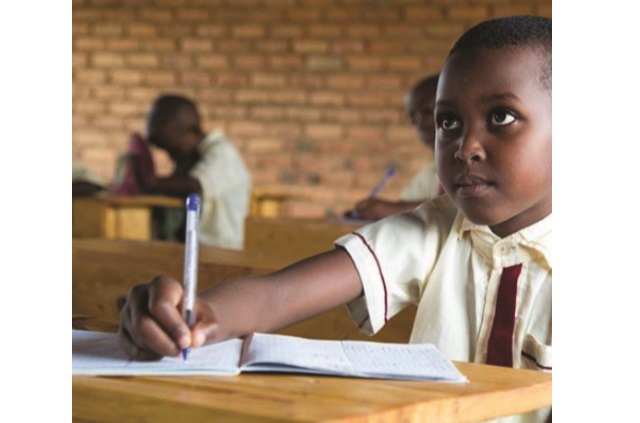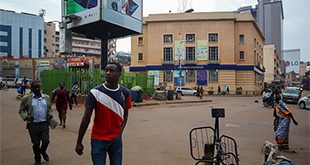
Experts blame outdated UNEB Act for failure rates
Kampala, Uganda | AGNES E NANTABA | The recently released 2018 Primary Leaving Examinations (PLE) caused excitement for many pupils, parents, and schools. But for some top elite schools Jan. 17, the day when the Uganda National Examinations Board (UNEB) released the results, was full of frustration.
These are schools where parents pay high fees expecting high quality teaching, learning, and examination grades. Classes expect and have previously scored a 100 percent pass rate. Not this time. To the surprise of many, scarcely known performed unexpectedly far better than the top academic giants. And conspiracies have been swirling since. Some blame the new marking system introduced by UNEB, although it is not clear how it could discriminate against top schools.
But according to Mary Okwakol, the UNEB chairperson, the new system; the Education Information Management System, is based on anonymity of school names during the marking process. Instead of the school names, it uses numbers given by the Ministry of Education and Sports (MOES). The idea is to improve on efficiency and effectiveness in the processing of results. The previous system required candidates to write their names, index numbers, name of the school and district but this changed last year.
This time, anonymous numbers were given out during the registration of schools for the exam to remove identifiable information from the examination script at the time of sitting.
“The system helps relieve pressure felt by examiners while dealing with top schools,” said Okwakol.
In addition to anonymity, the system also incorporates a ‘conveyor belt’ system where examiners only wait for scripts rotating on a conveyor belt. The examiner marks whichever scripts come his or her way. They also only mark a small portion of numbers and pass the script to someone else to mark other sections. Up to five examiners mark a script compared to one previously.
Away from the grumbling by specific schools, focus has this time focused on the high failure rates. Of the 646,190 candidates that sat the exams, only 57,198 or 8.85% passed in First Grade, 293,977 in second grade, 128,573 in third grade, 91504 in fourth grade and 57,354 walking away ungraded or failed. This officially translates into 9% failure rate, although pupils in third and fourth grade typically find difficulty advancing in good secondary schools.
Up to 476,131 pupils were from government sponsored Universal Primary Education (UPE) schools and 195,792 from private school.
According to the results, the pass rate for non-UPE schools was 22% while that for UPE schools stands at 4%.
Robert Mugambwa, a national trainer with Uwezo Uganda; an NGO that researches ways of improving learning, says that the disparity in pass rate results from different abilities of pupils to read. He says the Uwezo surveys have consistently shown that children in UPE schools are inadequately taught to read and, therefore, fail to comprehend and interpret questions.
He says even the failure to pass mathematics, can be attributed to read.
“There is a word question and comprehending it was a challenge,” he says, “Some pupils especially those in rural schools are not introduced to English early, so asking them to write a story which involves a lot of English becomes a challenge.”
Uwezo is a five year initiative that aims to improve competencies in literacy and numeracy among children aged 6-16 years old in Kenya, Tanzania and Uganda. Several reports it has done point to failure of learners in numeracy and literacy.
According to Uwezo Uganda Sixth Learning Assessment Report 2016 titled ‘Are our children learning’, 60 percent of P3 – P7 pupils in private schools could read and understand a P2 English story and P2 division with only 49 percent in private schools and only 45 percent in community schools. The report indicates that non-participation, late entry and delayed progression are still challenges in primary education in Uganda. There are also slight differences in learning outcomes between children from high and low socio-economic status households with 42 percent from wealthier household being able to read and understand an English story compared to 38 percent from poorer households.
Details in the report also point to an annex of Uganda pupils that is not learning for instance in Eastern Uganda and parts of Northern Uganda that are getting a raw deal in education. These translate into non-alignment or imbalance in terms of what is taught and examined thus failure to comprehend and learn on the side of the learners.
“In our assessment, pupils in private schools were able to do better numeracy and literacy and it’s now reflecting in the UNEB PLE results,” says Mugambwa.
Unmatched assessment policy
Focus has also been placed on the lack of a standard examination system on which UNEB would base to set questions. Many experts say the examiner bases on a 1983 UNEB Act to assess learners yet it is inadequate.
The current 30 year old system bases on summative system of assessment, where learners are evaluated at the end of an instructional unit. But the standard on which their performance is compared is not systematically set. The experts say this contributes to the disparity in performance from year to year.
Patrick Kaboyo, the National Secretary of Federation of Non-State Education Institutions (FENEI) says there is need for clear and professional assessment policy. Even the little efforts made towards amending the UNEB Act, Kaboyo says, have been done without consulting key players; like parents associations.
UNEB has also been calling for an amendment of the 1983 UNEB Act; but mainly citing its weakness in curbing examinations malpractices.
UNEB Executive Secretary Dan Odongo revealed that the law was outdated and in conflict with other laws. But the amendment has not been done.
Although the examiner has worked hard to curb examination malpractices, Okwakol noted that the main challenge still lies in teachers assisting learners with answers in the course of writing exams with eight cases registered in Bundibugyo district during the sitting of exams on November 4 and 5 last year. According to Kaboyo, this means the security leaks in the examinations are a systemic problem.
****
 The Independent Uganda: You get the Truth we Pay the Price
The Independent Uganda: You get the Truth we Pay the Price


